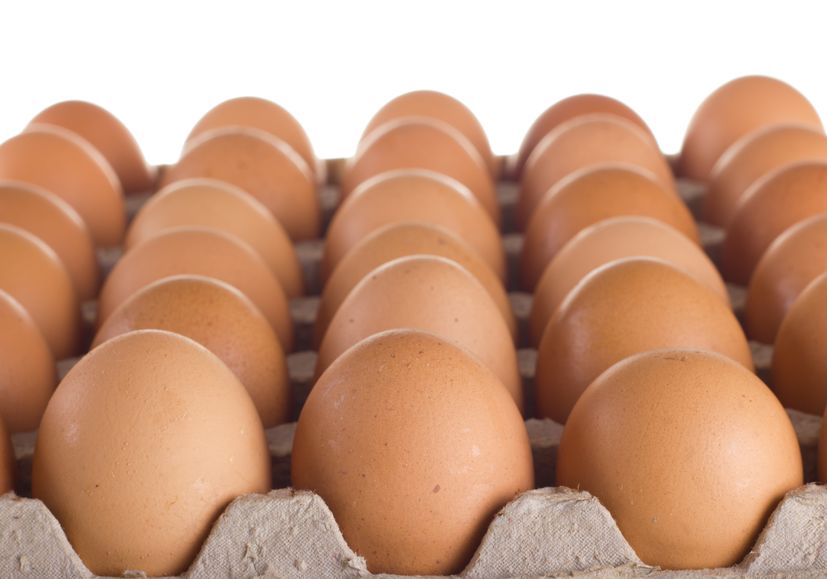
Some of the world’s biggest food companies have joined an initiative to boost supplies of cage-free egg products.
The Global Coalition for Animal Welfare (GCAW), whose founders include Nestle, Tesco and Compass Group, has been running a consultation to improve the cage-free supply chain.
It has identified the procurement of cage-free processed egg ingredients as a key challenge in meeting global cage-free egg commitments in the years ahead.
In the UK, all major retailers have committed to abandoning eggs from cages by 2025. It started when a 14-year-old girl from Sheffield initially targeted Tesco with an online petition stop selling cage eggs.
After Tesco announced that it would move away from cage, other retailers, including Asda, Morrisons, as well as the discounters Aldi and Lidl, also made cage-free declarations.
Sainsbury's, Marks and Spencer and Waitrose had already stopped selling eggs from cages some years ago.
This comes as the latest market survey is forecasting compound annual growth in world demand for liquid egg of 6% over the years ahead.
Fact.MR - a market research and competitive intelligence provider - estimates that the current global liquid egg market is worth $4.8 billion.
Now GCAW is looking into how the food industry can increase supplies of cage-free egg products as the market moves away form the use of eggs from cages.
Its initiative is looking at availability, cost and traceability of cage-free processed egg ingredients.
GCAW said: “Since 2016, over 1,000 companies globally have committed to cage-free egg production, including more than 300 in North America and more than 800 across Europe. Most of these commitments are to be achieved by 2025.
“In February 2021, the GCAW Laying Hen Welfare Working Group facilitated discussions with procurement colleagues from the member companies, with the aim of identifying barriers to the sourcing of cage-free eggs.
"The procurement of cage-free processed egg ingredients was identified as a key challenge in meeting global cage-free egg commitments.
"Specifically, the challenges centre on availability, cost and traceability of cage-free processed egg ingredients.”
It added: “The working group decided to hold a public consultation to seek wider views on the potential for alternative supply chain models to facilitate procurement of cage-free processed egg ingredients.
"The supply chain models to be considered in the consultation are based on those described by the Roundtable on Sustainable Palm Oil (RSPO): ‘Segregated’, ‘Mass Balance’ and ‘Book and Claim’.
“The focus of this consultation is to seek feedback on potential solutions for the procurement of cage-free processed egg ingredients.
"We are keen to hear from industry associations, egg producers, other food companies, and non-governmental organisations.”
Consisting of thirteen companies, GCAW represents some of the largest names in global food production and food service.
They include Aramark, Compass Group, Elior Group, Hilton Food Group, IKEA Food Services, Maple Leaf Foods, Nestlé, Sodexo, Tesco, the Cheesecake Factory, the Kroger Co., Tyson Foods and Unilever
With combined revenues of over $400bn, these firms say they have joined the coalition to collectively “address systemic barriers to improving animal welfare, accelerate the development of standards, and drive progress on key welfare issues.”
It comes as Compassion in World Farming (CIWF) recently produced its latest report on cage-free progress across the world.
It said that consumer demand for cage-free in the UK was increasing faster than industry conversion rates.
“It has never been clearer that the future of egg production will be - and must be - cage-free," said Dr Tracey Jones, director of food business at CIWF.
"Although progress has been made, which is remarkable against the backdrop of the pandemic, there is still considerable work to be done."
